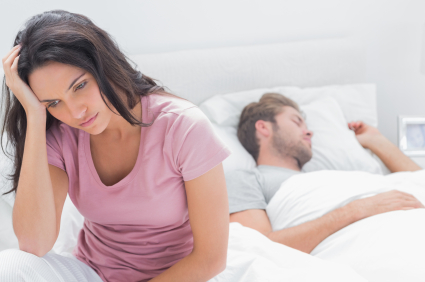Sleep and Anxiety and The Linden Method
Millions of people suffer from disordered sleep thanks to anxiety. Worries and stresses do not make comfortable bedfellows and if you have ever suffered from anxiety then you will be familiar with the dreadful sinking feeling which often accompanies your bedtime routine.
Because anxiety is essentially a mental illness which can creep up on its victims, many people are completely unaware that the feelings they are having are an actual disorder which can be treated. As anxiety takes its toll on your sleep patterns, you may become more and more exhausted and more and more unaware of the root causes of your distress.
The symptoms of anxiety can be split into two areas; physical and emotional. The main emotional issues which people report are as follows:
- Feelings of dread
- Loss of concentration
- Feeling jumpy or nervous
- Irritability
- Restlessness
- A “blank” feeling in your mind.
The physical symptoms usually include the following:
- A pounding heart
- Shortness of breath or trouble breathing
- Shaking
- Headaches
- Stomach upsets
- Insomnia
The insomnia mentioned above is of course as a result of the combination of physical and emotional disturbances which come about due to anxiety. Anxiety can be triggered by many things including money worries, employment issues, illness or bereavement and moving house. Sometimes it is not apparent what brought it on. Whilst many of these causes cannot be avoided, the good news is that sleep trouble due to anxiety can be managed.
Managing anxiety induced insomnia
Managing your sleep is the first step towards recovery from anxiety; because lack of sleep makes the symptoms of anxiety worse, it is vital that sleep is controlled and recovered enough that your body and mind can rest and heal during the night. One of the most popular methods for starting a recovery from anxiety induced sleep problems is The Linden Method.
What is The Linden Method?
The Linden Method is a highly acclaimed healing process which was founded by Charles Linden in 1997. Mr Linden had been a long term sufferer of anxiety and his journey to recovery was the basis for his technique which is a psychological process which does not rely on any drugs and instead focuses on controlling the Autonomic Nervous System…which is in part responsible for our breathing, circulation and digestion.
By learning to control this system, those who begin The Linden Method find that their anxiety becomes manageable and eventually disappears.
The Linden Method is the only recovery program recommended and utilised by the government. It is guaranteed to work (if you go via the link below where you get instant access to the course) or you get your money back. You can visit Charles Linden’s site about Anxiety and The Linden Method here and watch videos from the likes of world reowned make-up artist Jemma Kid on how she overcame anxiety with this method.
What other help is there?
Some people who suffer from anxiety find that meditation and Yoga can help enormously in their battle to relax. The ability to “turn off” the mind is not something which everyone has naturally and some people need to be taught techniques to do this effectively. Looking after your diet and your body are also valuable habits to begin forming if you suffer from sleep loss due to worry. Alcohol, smoking and high-fat or high-sugar diets can exacerbate the issues at hand and so for most people, avoiding these destructive habits is a good start in taking control of anxiety.
Panic disorder is a constant state of anxiety with sufferers experiencing several panic attacks a day over several weeks. The attacks become habit-forming and sufferers become stuck in a vicious cycle of fear and avoidence. This can often wreak havoc with sleep and cause uncomfortable physical sensations when you try to relax. Your heightened nervous state brings normal physiological sensations to the forefront of your mind and makes them seem unnatural. Panic disorder can benefit from short-term medication as a launch-pad, and a big effort on the part of the sufferer to tackle the underlying cause. Again The Linden Method is still the best help outside of the doctor’s office you will find.
One of the first ports of call for anyone who finds themselves suffering the effects of anxiety should be the doctor. GP’s can offer good advice as well as a sympathetic ear and the simple act of speaking to someone else about your anxiety is an empowering thing…get help for your anxiety sooner rather than later.
The Sleep Hub recommends:
1. Exercise. Every day. This is a must for anxiety sufferers. Read this article from PsychCentral for more about how intense exercise helps combat Anxiety and Panic (see your GP if embarking on an exercise program after a long break or you consider yourself unfit)
2. The Linden Method. There simply are no other books/courses out there in our experience that are not a version of this. The only method endorsed by NHS.
3. See your GP. You may require short-term medication to help you over the worst whilst you employ other methods.
4. Rest assured this is temporary. It may not feel like it now, but you will overcome. Please remember: You once lived without Anxiety; you will live again Anxiety free!


